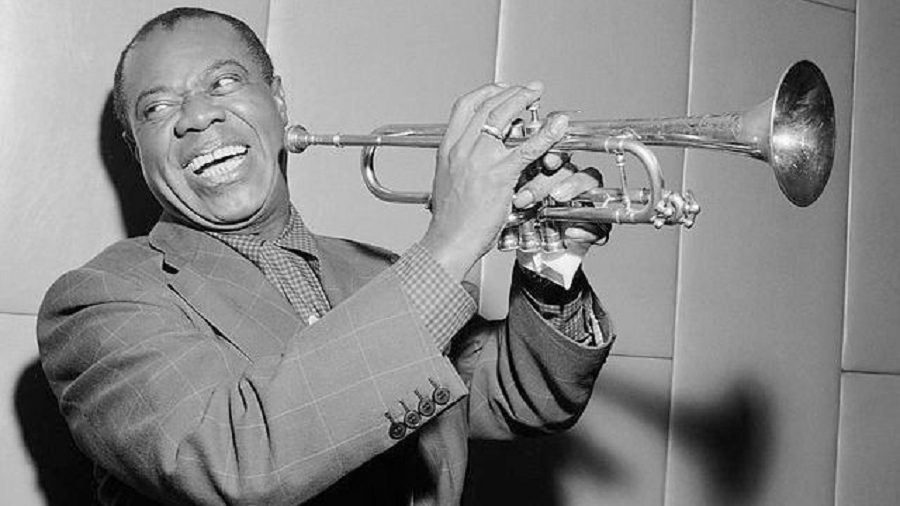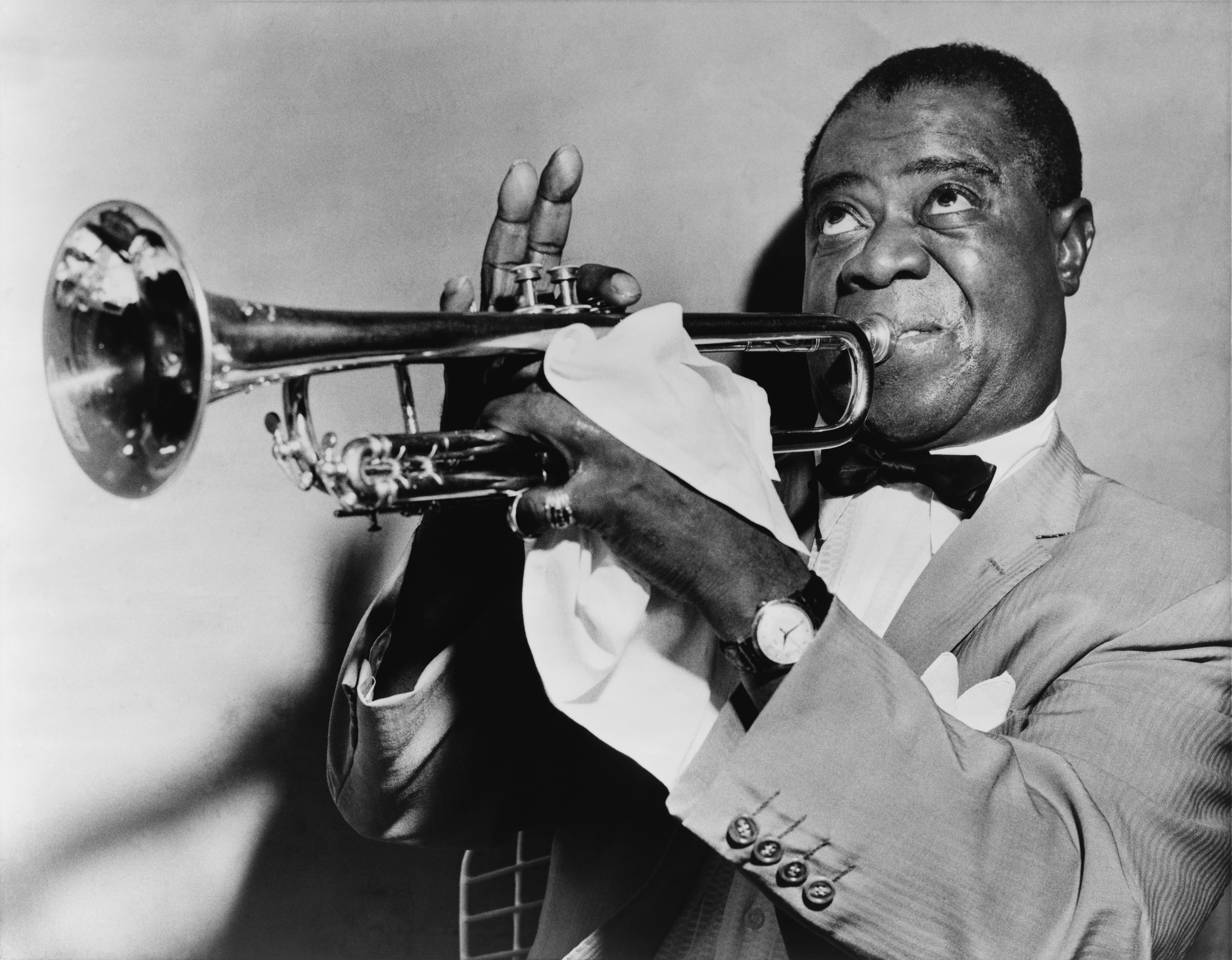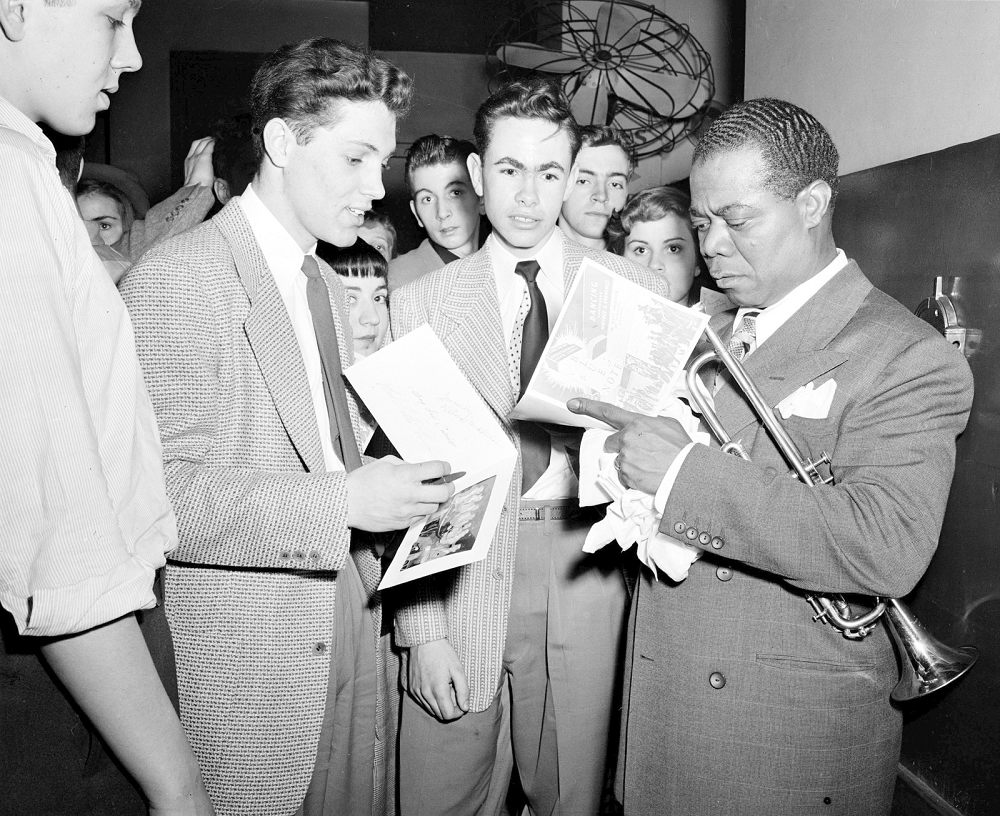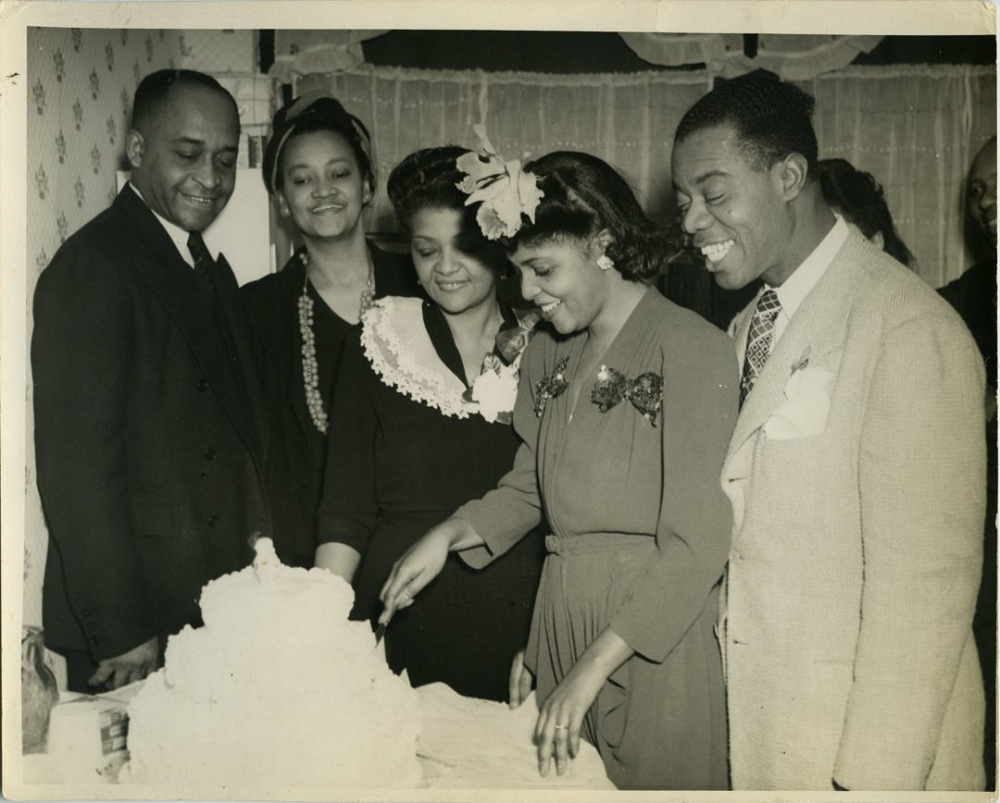
Louis Armstrong is a name that rings through the halls of jazz history. Known for his unique voice and groundbreaking musical style, Armstrong was one of the most influential musicians of the 20th century. From his early days in New Orleans to his international fame, Armstrong’s impact on jazz and popular music cannot be overstated.
Born in 1901, Armstrong grew up in poverty in New Orleans, where he learned to play the cornet in the city’s vibrant jazz scene. He quickly established himself as a talented musician, and his career took off in the 1920s as he joined various jazz bands and began recording his own music. With hits like “What a Wonderful World” and “Hello, Dolly!”, Armstrong became a household name and a cultural icon whose legacy continues to inspire musicians to this day.
Louis Armstrong, also known as Satchmo, was a legendary jazz musician and singer born in New Orleans in 1901. He is widely regarded as one of the most influential musicians in the history of jazz, and his unique style and charisma made him a beloved figure around the world. Armstrong’s career spanned over five decades, during which he recorded numerous hits such as “What a Wonderful World” and “Hello, Dolly!” His innovative use of improvisation and scat singing revolutionized jazz and inspired countless musicians. Armstrong passed away in 1971, but his legacy lives on as a true icon of American music.

Full Details: Louis Armstrong
| Name: | Louis Armstrong |
| Nickname: | Satchmo |
| Profession: | Musician, Singer, Composer |
| Date of Birth: | August 4, 1901 |
| Age: | 69 (Died on July 6, 1971) |
| Net Worth: | $10 million |
| Height: | 5′ 6″ |
| Weight: | 75 kg |
| Body Measurements: | Unknown |
| Eye Color: | Brown |
| Hair Color: | Black |
| Birthplace/Hometown: | New Orleans, Louisiana, United States |
| Nationality: | American |
| Gender: | Male |
| Ethnicity: | African-American |
| Religion: | Baptist |
| Sexuality: | Straight |
| Sun Sign (Zodiac Birth Sign): | Leo |
| House Location: | Unknown |
| Wiki Page: | https://en.wikipedia.org/wiki/Louis_Armstrong |
| Facebook Link: | https://www.facebook.com/LouisArmstrong/ |
| Twitter Profile Link: | https://twitter.com/LouisArmstrong |

Physical Statistics
| Height (Tall) | 5 feet 6 inches (1.68 m) |
| Weight | 165 lbs (75 kg) |
| Profession | Musician, Composer, Singer, Actor |
| Eye Color | Brown |
| Shoe Size (UK) | 8 |
| Hair Color | Black |
Louis Armstrong was a legendary American jazz trumpeter, composer, and singer. He was born on August 4, 1901, in New Orleans, Louisiana, and died on July 6, 1971, in Queens, New York City. Despite his relatively short stature, Armstrong had a commanding presence on stage and was known for his unique voice and musical style. He is widely regarded as one of the most influential musicians of the 20th century.

Family
| Parents | William Armstrong and Mary Albert Armstrong |
|---|---|
| Weight | Unknown |
| Siblings | Beatrice Armstrong Collins, Lucy Armstrong, Albert Armstrong, and infant sister who died at birth |
Unknown Facts about Louis Armstrong
The Iconic Musician
Louis Armstrong, the legendary musician and jazz pioneer, is a name that needs no introduction. Known for his unique style of playing the trumpet and his soulful voice, Armstrong’s music continues to inspire and influence generations. But did you know that there are many unknown facts about this musical icon that even the most ardent fans may not be aware of?
The Man Behind the Music
Louis Armstrong’s life was as fascinating as his music. He was born into poverty in New Orleans and grew up in a rough neighborhood. Despite the odds, he went on to become one of the most successful and beloved musicians of all time. Armstrong’s influence on the music industry is unparalleled, and his music continues to be celebrated worldwide. In this article, we will delve deep into the life of Louis Armstrong and uncover some fascinating facts that you may not know about him.
Discover the Untold Stories
From his humble beginnings to his rise to fame, there are many little-known facts about Louis Armstrong that are worth exploring. Did you know that he was a gifted actor and appeared in several Hollywood films? Or that he was a passionate advocate for civil rights and used his music to spread the message of equality? In this article, we will shed light on some of the lesser-known aspects of Louis Armstrong’s life and career. So, join us on this journey of discovery and get ready to be amazed by the untold stories of this iconic musician.
Louis Armstrong: The Jazz Legend
Early Life and Career
Louis Armstrong was born on August 4, 1901, in New Orleans, Louisiana. He grew up in poverty and began playing the cornet at a young age. Armstrong learned to play by ear and quickly became skilled at improvisation. In 1919, he joined the Kid Ory Band and later played with other notable jazz musicians, including King Oliver, Fletcher Henderson, and Duke Ellington.
Armstrong’s career took off in the 1920s when he formed his own band, the Hot Five. He recorded many of his most famous songs during this time, including “West End Blues” and “Potato Head Blues.”
Despite facing racial discrimination throughout his career, Armstrong continued to be a beloved and influential figure in the jazz world for decades.
Early Musical Influences
Armstrong was exposed to music at an early age through his family and the lively music scene in New Orleans. He was particularly influenced by the jazz music of King Oliver, who became his mentor and a lifelong friend.
Armstrong also drew inspiration from classical music and popular songs of the day. He brought these influences into his own music, creating a unique style that would become his trademark.

The Jazz Age
The 1920s were a time of great change in the United States, and jazz music was at the forefront of this cultural revolution. Armstrong’s music embodied the spirit of the Jazz Age, with its emphasis on improvisation, syncopation, and individual expression.
Armstrong’s popularity soared during this time, as he toured the country and recorded some of his most iconic songs. He also became a symbol of African American achievement and pride, inspiring generations of musicians to come.
Civil Rights Activism
Despite facing discrimination throughout his career, Armstrong was a vocal advocate for civil rights. He refused to perform in segregated venues and spoke out against racial injustice in interviews and public appearances.
Armstrong’s activism was not without controversy, as some accused him of being too complacent with the status quo. However, his influence on the civil rights movement cannot be denied, as he paved the way for future generations of African American musicians and activists.
Legacy
Armstrong’s impact on jazz music and American culture as a whole cannot be overstated. He popularized many of the techniques and styles that are now synonymous with jazz, including scat singing and swing rhythm.
Armstrong’s music also transcended boundaries of race and class, bringing people together and inspiring them to dance and celebrate. His influence can be heard in countless genres of music, from rock and roll to hip hop.
The Armstrong Sound
One of Armstrong’s most enduring legacies is his unique sound, characterized by his gravelly voice and virtuosic playing. He was a master of improvisation, always pushing the boundaries of what was possible on the cornet and trumpet.
Armstrong’s sound has been imitated by countless musicians over the years, but no one has been able to capture the same magic and charisma that he brought to every performance.
A Lasting Inspiration
Today, Louis Armstrong is remembered as one of the greatest musicians of all time. His music continues to inspire and delight people around the world, and his legacy lives on through countless recordings, films, and books.
Armstrong’s influence can also be felt in the work of contemporary musicians, who continue to draw inspiration from his innovative spirit and timeless sound.
References
- https://www.biography.com/musician/louis-armstrong
- https://www.npr.org/2019/08/04/743248637/louis-armstrong-the-man-behind-the-trumpet
- https://www.history.com/topics/jazz/louis-armstrong
Louis Armstrong was one of the most influential jazz musicians of all time. His innovative techniques and unique style transformed the genre and inspired countless musicians who came after him. But beyond his musical contributions, Armstrong’s life story is a testament to the power of perseverance and the ability of the human spirit to overcome adversity.
Despite growing up in poverty and facing discrimination throughout his life, Armstrong never lost his passion for music. He overcame countless obstacles to become one of the most beloved and respected musicians of the 20th century. His music continues to be celebrated around the world, and his legacy lives on through the countless musicians he has inspired.
But perhaps what is most remarkable about Armstrong’s life is the joy and positivity he brought to the world. His infectious smile, playful spirit, and love of life touched the hearts of millions and left a lasting impression on all who knew him. As he once said, “What we play is life.” And indeed, Louis Armstrong’s music and spirit continue to bring joy and inspiration to people around the world, reminding us of the power of music to unite us all.
In conclusion, Louis Armstrong was not just a musician, but a true icon of American culture. His contributions to jazz music and popular culture are immeasurable, and his legacy continues to inspire and uplift generations. From his humble beginnings in New Orleans to his worldwide fame, Armstrong’s life is a testament to the power of perseverance, and his music and spirit continue to bring joy and inspiration to people around the world.
